Michael Cusumano here to explore what keeps fans returning for repeat voyages on Peter Weir's 2003 nautical adventure.
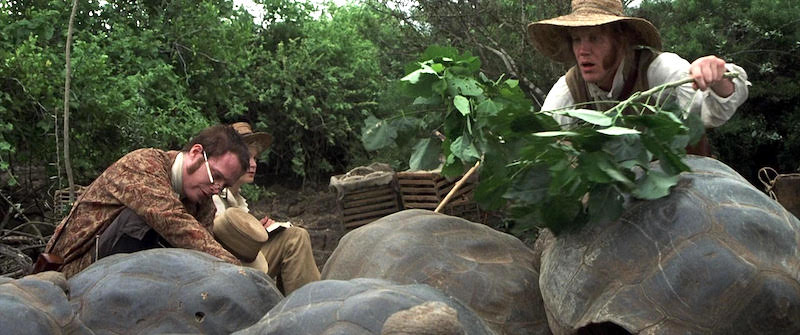
Scene: Exploring the Galapagos
Right before the climactic naval battle in Peter Weir’s Master and Commander: The Far Side of the World, the story pauses to watch a scientist leisurely wander the Galapagos Islands, collecting lizards and measuring giant tortoises. How many modern adventure films would halt the action dead in its tracks like that? Hell, how many films from any era would resist relegating such a detour to the cutting room floor? I can imagine David Lean including the sequence, but then his version of Master and Commander would probably push the four hour mark.
This adaptation of Patrick O’Brien’s series of novels is less about narrative urgency and more about creating a world to get lost in. Sure, when the time comes to pay-off the naval duel at the center of the plot, Master and Commander delivers in spectacular fashion. But that’s not what keeps the devotees of the film returning over and over again...
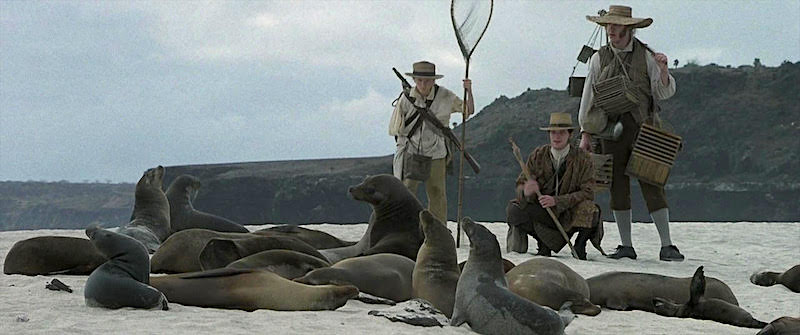
It’s about the tangents and digressions more than the action set pieces. More about taking the time to show a canon-firing practice session than about watching the cannonballs fly in battle. Less about soaring speeches and more about the little peculiarities of language that co-writer Weir and John Collee take care to include. This movie deserves a place of honor alongside Anchorman and Princess Bride for its quotability. (“Clearly something nautical and fascinating just happened. I am at a loss.”)
Weir's film is positively Altman-esque in the way it drops the viewer the middle of the action, providing more detail than one can absorb on a single viewing. We learn indirectly, picking up everything from personalities to the hierarchies of command through the unhurried rhythms of life aboard the HMS Surprise. It’s more Gosford Park at sea than Captain Blood.
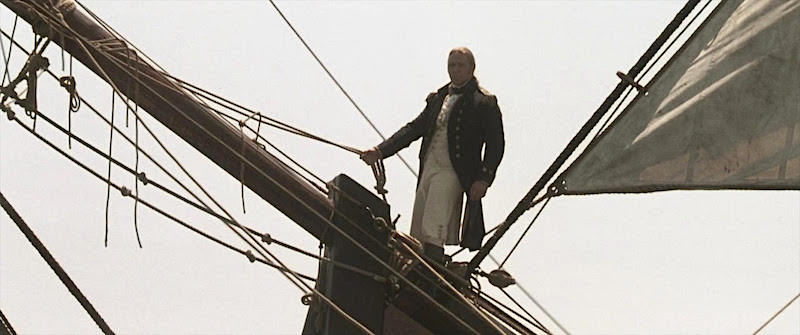
Russell Crowe’s Captain Jack Aubrey and Paul Bettany’s Dr. Stephen Maturin are set up as contrasting forces, the man of war vs. the man of science. But since the film doesn’t march them through the beats of a formulaic screenplay they are freed to be so much more interesting than this simple dichotomy. Captain Aubrey is militaristic and authoritarian, but, like the film itself, he is more thoughtful than we expect. When the doctor displays contempt for the Navy during one of their frequent debates, Crowe’s character remarks, “I hate it when you talk of the service in this way. It makes me feel so very low. “ Again I step back and marvel at the film finding space for such a moment: One of the biggest action stars on the planet lamenting that another character hurt his feelings.
Yes, the Captain cancels Dr. Maturin’s exploration of the Galapagos for the sake of military expediency (“I do not have time for your damn hobbies, sir!”) But when the doctor is unexpectedly injured and his survival depends on steady ground for surgery, Captain Aubrey is capable of putting the man ahead of the mission, docking the ship and allowing their foes to escape.
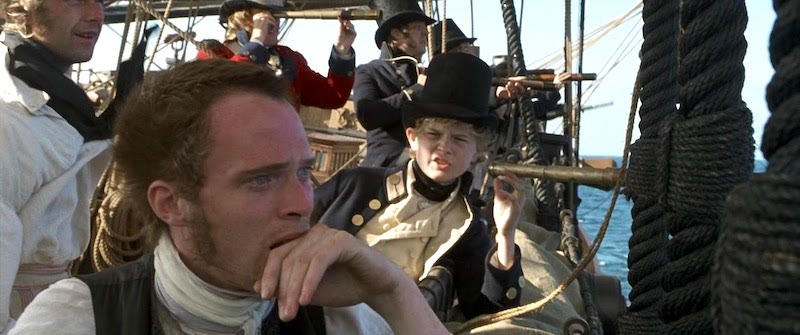
Likewise, Paul Bettany's Darwin-inspired doctor seems to view his presence on a vessel of war as a necessary evil in the pursuit of knowledge, using the mission to a hitch a ride to exotic, unexplored regions of the globe. Yet when the time comes he acquits himself surprisingly well in battle and in spite of being a fanatic in the cause of scientific discovery he is capable of putting the ship’s mission ahead of his own, cutting his study of the Galapagos short when he unexpectedly spots the enemy’s position. His sacrifice in this moment is surprisingly moving, a testament to how much weight the film affords a character who in a lesser film would be the egghead supporting player with no inner life, a Q to Crowe’s James Bond.
This film's reputation has flourished more than its reception back in 2003 might have led people to predict. Despite being a wide-release event film, its fans love it with a fervor normally reserved for cult items rescued from obscurity. But in a way Master and Commander is such a discovery. Only it’s fans aren’t discovering an overlooked gem, they’re discovering the contemplative art film hidden inside the big-budget prestige picture. Oscar Wilde once described “the ability to play gracefully with ideas”. It’s a phrase I think of often when I reflect on the special appeal of this film.
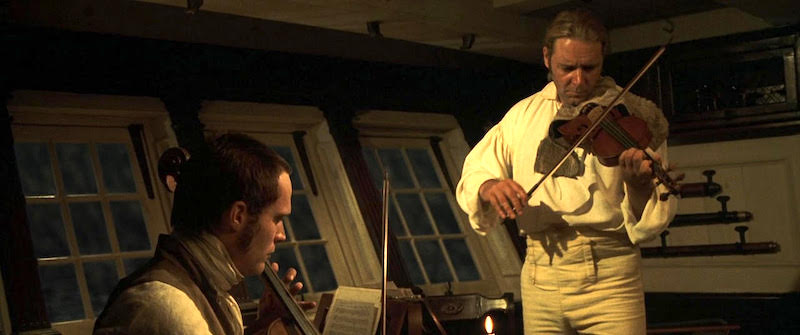
Previously on "The New Classics"
- Hedwig and the Angry Inch (2001)
- Y Tu Mama Tambien (2001)
- Sexy Beast (2001)
- Before Sunset (2004)
- Collateral (2004)
- Eastern Promises (2007)
- Michael Clayton (2007)
- Happy-Go-Lucky (2008)
- The Hurt Locker (2009)
- In the Loop (2009)
- Meek's Cutoff (2010)
- A Separation (2011)
- Blue Ruin (2013)
- 20th Century Women (2016)